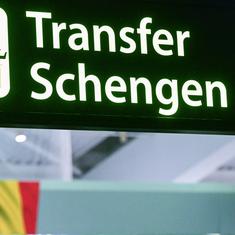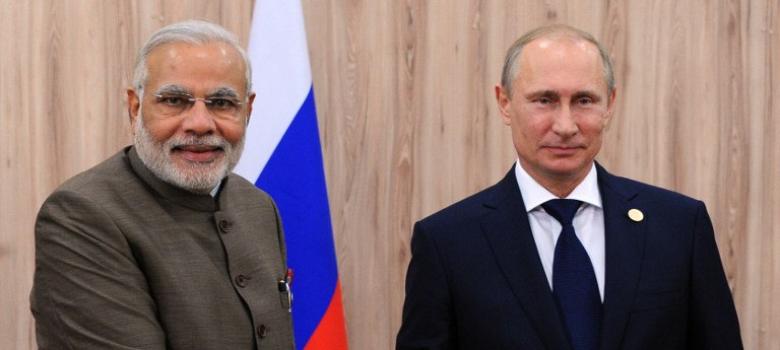New Delhi and Moscow have shared close bilateral relations since 1947. In the post-Independence days, when India was struggling with a weak economy as well as an indifferent West, it found support in the erstwhile Soviet Union. For this reason and others, India’s position on Moscow superseded its policy of non-alignment during the Cold War.
Decades later, though the relationship remains special, it has hit turbulence lately.
No absolutes
Last month, Russian Defence Minister Sergei Shoigu paid a visit to Pakistan – a path-breaking trip by all measures since he was the first Russian defense minister to do so. In New Delhi, reactions to the visit ranged from the tame to the confused. Russia is our main strategic ally, so why is it courting Pakistan and looking to sell it defence equipment?
This rocky patch appears surprising, at least on the surface. Several analysts see Modi and Putin as political siblings who exemplify the new nationalistic wave sweeping their countries. Modi’s mandate exhibits this fervour. Though Putin has got flak for his actions in Ukraine, he still enjoys overwhelming popular support in Russia with his hardline stance against the West.
In recent times, India has stood behind Moscow in its most aggressive policies. When Russia annexed the Crimean peninsula from neighbouring Ukraine in March, New Delhi declared that Moscow had legitimate interests in the region. In May, it sided with Moscow and Beijing on the issue of Syria, resisting military action against Syrian President Bashar al-Assad.
But commonalities aside, one thing that international diplomacy does not adhere well to is the idea of the absolute. This is true even for the best of relationships.
Fragile economy
Ignored in Delhi's reactions to Russia's new interest in Pakistan was the fact that diplomacy is a lonely game. Your friend today is your foe tomorrow and vice-versa.
Russia’s economy is fragile, based almost entirely on oil and gas revenues. It uses these earnings to run the various schemes at home that give Putin his larger-than-life persona. If the Russian economy slips, so does Putin’s way of running Kremlin’s foreign policy.
Moscow has noted that it has legitimate interests in Afghanistan – hence, its outreach to Islamabad.
Deceptive suitors
The changing dynamic between Delhi and Moscow is apparent. Russian Ambassador to India, Alexander M Kadakin, laid out a clear foundation before Putin’s visit to the country. He made no qualms in admitting that India’s defence deals with the US have not gone down well in Moscow.
Kadakin said there was no contract with Pakistan on the sale of Mi-35 attack helicopters as yet, but the “door is open” since India awarded its chopper contract to America. He observed that it would be easier for India and Russia to influence Pakistan together if Moscow had a stronger foothold there.
“India is like a rich fiancée,” Kadakin reportedly said. “A beautiful fiancée will have many suitors. Just be careful no one promises marriage and then deceives.” He later quipped that he was a little “badmash” in his statements.
Regaining momentum
India’s shift away from defence procurement from Russia is rooted in some regrettable experiences. For the price it paid for the second-hand Admiral Gorshkov aircraft carrier (now INS Vikramaditya), India could have procured a new one. The Indian Air Force’s Sukhoi 30 fleet is plagued by groundings due to engine issues and spare part problems.
Tired of the underperforming Russian equipment, India has been giving preference to companies from other countries such as the US, France and Israel over the last few years. Naturally, this has displeased Russia’s prominent military-industrial complex, whose revenues are even more critical now because of the crashing global oil prices.
Still, despite the changing currents, the India-Russia relationship is not diminishing and is one good bilateral summit away from regaining lost momentum. Both countries are slated to sign 15-20 key pacts this week. Russia has offered India help in every sector ranging from oil and gas exploration in the Arctic to technology, defence and nuclear cooperation.
Moscow cannot afford to orchestrate a diplomatic slowdown under the current global geopolitical and geo-economic circumstances, and neither can New Delhi. Russia needs New Delhi and Beijing to infuse capital into its economy, and Putin will look to achieve this aim in the Indian capital this week.










